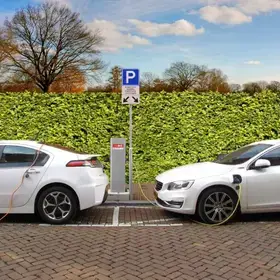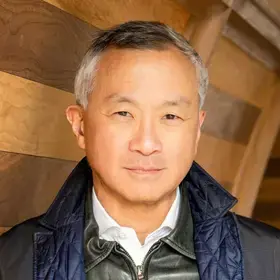Last month, the Diversity, Equity, Inclusion, and Accessibility (DEIA) Committee welcomed its first-ever associate director, Errold Jones.
Jones joins the committee with more than 10 years of experience in the field of DEI, several of which were spent working with Columbia’s Business School and School of International and Public Affairs (SIPA). He also holds an executive master’s degree in public administration from SIPA.
We recently spoke with Errold to learn more about what sparked his passion for DEIA and some simple ways Columbians can help promote the values of diversity, equity, inclusion, and accessibility in the classroom and on campus.
Tell us a bit about your background.
I’m a born and raised New Yorker from Jamaica, Queens, which really influences a lot of how I look at the world. My grandmother was well known in my neighborhood for taking care of a lot of people. I think that growing up with those values of taking care of people and being community-driven—how are we taking care of each other? how are we raising each other's kids?—really had a profound impact on me.
What first drew you to the field of DEIA, and what keeps you dedicated to this line of work?
I wanted to be one of those folks who's joining the fight of creating access for others so that other people can create a life they really want to live. We already know there's a massive wealth gap, with women not being paid the same as their male counterparts, and LGBTQIA folks are being killed at higher rates. Part of it is that these folks don't have access to resources that will allow them to be on an equal playing field with others. What really brought me to this work was thinking, how can I create access for those who have been overlooked, not allowed in, and systematically held back from these experiences?
Before joining SPS, you served as the Assistant Director of Inclusion and Global Awareness at Columbia Business School. What was one takeaway from that role that you’re bringing to SPS?
I think what the Business School really allowed me to learn and to build upon is how we break barriers among folks who don't normally speak to each other or work together. Once that barrier is removed, you'll be surprised to see how far an initiative, a project, or even just a working relationship can go. If we're not able to collaborate across those stakeholder groups, our impact will not be as large. And if we're only doing it for one group of people, the impact won't be as strong.
What is the first step you plan to take in your new role?
The first step is to completely understand the SPS ecosystem. I've been setting up meetings across the institution, looking to dive into the faculty side, reaching out to HR. It's really just understanding SPS: What makes us a successful school? What makes us a thought leader in the world? What makes us who we are? After that is really just thinking strategically. How can we engage the entire community?
What are some ways for Columbians to promote the values of diversity, equity, inclusion, and accessibility in the classroom and on campus?
I think there are three things we can all do on our own.
The first is getting uncomfortable. Equity work demands confronting discomfort head on, as a unified community, to address deep-seated social and organizational inequities. If you find yourself at ease while others battle for access, representation, and equity, it's a stark reminder of the privilege you hold in the situation. Acknowledging this privilege presents an opportunity—a chance to leverage your power and social influence for the benefit of marginalized identity groups within our community. By actively engaging in this work, we not only dismantle barriers but also pave the way for a more inclusive and just society.
Next is listening to understand. Perspective-taking is crucial for understanding and supporting our fellow Columbians. When we listen to understand rather than respond, we foster empathy and connections. Relationships within our community—such as those between professors and students, managers and staff, or student leaders and organizations—are complex. When we apply the lens of gender, race, and ethnicity, these relationships become even more intricate. It's vital to prioritize listening and understanding, creating inclusive spaces where every voice shapes the future of our school.
Finally, we need to remember that we are all One Columbia. Part of Columbia's mission statement is to “seek to attract a diverse and international faculty, staff, and student body, to support research and teaching on global issues, and to create academic relationships with many countries and regions.” When you join Columbia, you get more than an education; you inherit a mission. Our collective responsibility is not only to better ourselves but also to contribute to the betterment of the world. In the face of countless geopolitical challenges, both domestic and international, it is imperative that we remain unified as one Columbia. By staying united, we possess the collective strength and intellect to forge frameworks and solutions that transcend boundaries, offering the world pathways to overcome even the most daunting of situations.
About the DEIA Committee
In June 2021, Columbia SPS formed its inaugural Diversity, Equity, Inclusion, and Accessibility (DEIA) Committee. Comprised of more than 20 administrative staff members and faculty, the committee works with the Chief Diversity Officer to identify and recommend policies to institutionalize diversity, equity, inclusion, and accessibility in SPS’s hiring, curriculum development, learning and development programs, support networks, and other practices. Learn more here.


